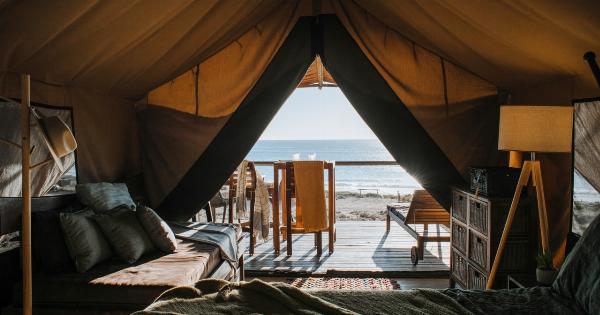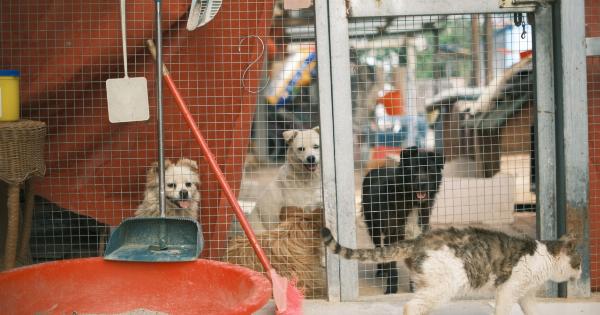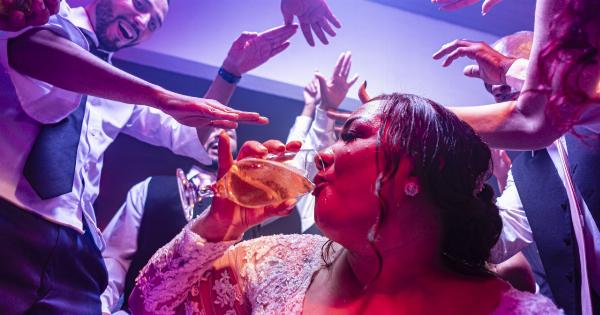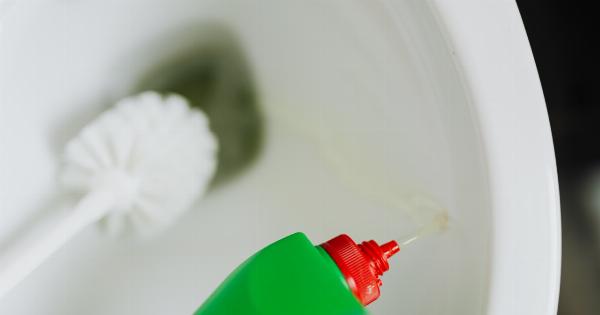Hotels are a hub of comfort, luxury, and convenience for travelers worldwide. While hotels aim to provide all-encompassing hospitality services, there are certain things that guests are prohibited from doing or bringing into their rooms.
These rules are for the safety and comfort of every guest and hotel staff. Here are 30 items that are strictly forbidden in hotel rooms.
No Smoking
Smoking is prohibited in hotel rooms, and in public spaces in most countries. Smoking harms not only the smoker but also the hotel staff and other guests who may inhale it. Some hotels have designated smoking zones outside or rooftop terraces.
Check with your hotel if they have them. If you’re caught smoking in hotel rooms, you may face cleaning fees, fines, and even legal actions, depending on the laws of the country.
No Pets
Most hotels don’t allow pets inside their rooms, with exceptions to service dogs for the visually or hearing-impaired.
The reason is that having pets inside rooms can cause allergies to other guests, sanitation issues, excessive noise, and damage furniture, and fixtures. Some hotels, however, offer pet-friendly accommodation, but they may set a fee and additional cleaning standards.
No Outside Food and Drinks
Bringing outside food and drinks in most hotels is prohibited. It’s always better to order from the hotel’s room service or check their restaurant’s menu beforehand.
Outside food and drinks can cause hygiene issues, attract insects and rodents, and leave stains on the furnishings. If you need something to snack or drink, check the minibar or ask the staff for vending machines or any nearby convenience stores.
No Cooking
Some hotels provide kitchenettes with cooking facilities, but others don’t. If cooking isn’t allowed, never attempt to set up a portable cooking stove or electric kettle in your room.
It can trigger the smoke detectors, cause fires, and emit toxic fumes that are hazardous to your health and safety. If you’re craving homemade meals, restaurants are the better and safer option.
No Candles or Incense
Most hotels prohibit lighting candles, incense, or any open flames in their rooms. They pose fire risks and can release overwhelming smoke and odors that other guests might find unpleasant or irritable.
If you need to freshen up your room’s scent, you can use the hotel lobby’s or bathroom’s air freshener or ask the staff if they have scented candles that are safe for indoors.
No Firearms and Weapons
Firearms and weapons are strictly prohibited in hotels for security reasons. Bringing these into the rooms can threaten other guests and staff’s safety. If you’re traveling with firearms or weapons, check with your hotel first.
Some hotels have safe deposit boxes in their reception areas where you can store them during your stay.
No Excessive Noise
Hotels are a place for rest, relaxation, and comfort. Guests are not allowed to create loud and excessive noise that disturbs other guests’ privacy and peace.
If you are celebrating something or playing music that you’re unsure of being too loud, it’s best to use your earphones or call the hotel’s front desk and ask the staff to check if it can be heard from other rooms.
No Party Planning
Parties, gatherings, or events are not allowed inside hotel rooms, unless the hotel offers private function rooms. Parties can attract non-guests, cause damages, and disturb other guests.
Advanced booking of private function rooms or designated event areas is necessary, and all the hotel’s rules and regulations must be followed to the letter.
No Stealing hotel Property
Stealing is a serious offense in hotels and can result in criminal charges and fines. Guests are not allowed to take home hotel property, such as bathrobes, towels, slippers, and other amenities.
If you love the toiletries or need additional ones, you can ask the hotel staff, and they will gladly provide them for you.
No Unregistered Guests
Hotels have strict capacities and safety procedures that protect not only guests but also staff. Unregistered guests are not allowed to enter rooms, and it’s always better to be safe than sorry.
If you have guests, you can invite them to a public area or follow the hotel’s policy on visitors. Violating this rule can incur fines and may lead to eviction, depending on the hotel’s policy.
No Drugs or Prohibited Substances
Drug use, possession, and distribution are strongly prohibited in hotels. Consuming prohibited substances are against the law and can harm not only the guests but also the people around them.
If you need medication, liquor, and other similar items, check with your hotel’s front desk if they have them on hand. Never purchase prohibited substances from unknown individuals around the hotels.
No Gambling
While some tourist destinations are known for their casinos, it’s still forbidden to engage in gambling in hotel rooms. Gambling attracts non-guests, and the noise of gaming can disturb other hotel occupants.
If you want to play games, ask the hotel staff if they offer such services, or better yet, visit nearby casinos or arcades.
No Hazardous Materials
Gases, chemicals, and other hazardous materials are strictly prohibited in hotels due to fire and health risks.
If you’re transporting hazardous substances, inform the hotel staff first, and they might be able to assist you with storing or disposing of them properly.
No Running in the Halls or Stairwells
Running and jumping in the corridors and stairwells of a hotel are dangerous activities that can hurt you and other guests. Hotels have safety procedures and emergency exits, and following them is necessary in the event of a disaster.
No Overflowing the Bathtub
While taking a nice bath can be therapeutic, overflowing the bathtub can cause water damages to the room and the adjacent rooms.
Always keep an eye on the water level, and if you notice that it’s rising too high, turn off the faucet and drain the tub, or call the hotel staff for assistance.
No Moving Furniture
Some guests may rearrange the furniture to suit their preferences, but moving them too much can cause damage, scratches, and more cleaning fees.
Furniture is arranged that way for a reason, and if you think the room’s furniture needs more adjustment, ask the hotel staff if they can help.
No Hanging Anything on Fire Sprinklers or Smoke Detectors
Fire sprinklers and smoke detectors are essential safety devices that monitor the hotel rooms for fire and smoke. Hanging anything on them, such as clothes, or decorations, interferes with their function and causes false alarms.
If you need extra hangers or clotheslines, you can ask the hotel staff for them.
No Leaving Your Valuables Unattended
Valuables such as money, cellular phones, and passports, should never be left unattended in the room. Hotels provide safe deposit boxes where guests can store them securely during their stay.
It’s always better to be safe than sorry and keep your valuables in a secure place.
No Using Irons on the Bed or Carpet
Irons require flat and hard surfaces to get the wrinkles out of clothes. Using irons on beds, sofas, and carpets can cause damages, and in the worst-case scenario, start fires.
Always use ironing boards provided by the hotel or ask for assistance if you’re unsure of where to use them correctly.
No Harassment of Staff or Guests
Hotels are safe zones for every guest and staff. Harassing or threatening others in the premises goes against the hotel’s codes of conduct, and doing so can result in fines and even more severe legal consequences.
If you encounter problems or issues during your stay, always be polite and mindful when addressing them to the hotel staff.
No Skipping Payment
Skipping payment is a serious offense in any hotel. Hotels provide services that come at a cost, and skipping paying can lead to damages to the hotel’s finances and reputation.
If you have any payment issues, always be honest and communicate with the hotel staff beforehand to avoid any misunderstanding.
No Graffiti or Vandalism
Guests who damage, vandalize, or draw graffiti in the hotel’s premises can face criminal charges and hefty fines.
Graffiti and vandalism can cause damages to the hotel’s image, and the rooms’ repairs can cost the hotel significant amounts of money in repairs. Always respect the hotel’s property and the rules and regulations set in place.
No Leaving the Bathrooms a Mess
Bathrooms are essential areas where guests bathe, refresh, and change. Leaving them in a mess can cause hygiene and sanitation issues, and the next guest who uses them could have an unpleasant experience.
If you need housekeeping, inform the hotel staff if they can clean the bathroom as well.
No Tampering with Hotel Equipment
Hotels provide various amenities and equipment for their guests, such as TVs, air conditioning, and sockets.
Tampering with them or trying to fix them yourself can cause technical problems and even accidents that threaten your safety and the local hotel staff. Inform the hotel staff of any technical issues and wait for them to fix them.
No Dismantling Pillows and Mattresses
Pillows and mattresses are personal items that the hotel provides to ensure a comfortable and healthy sleeping experience. Dismantling them or removing their contents can damage the items, and other guests might use them.
If you have allergies or require more pillows or blankets, ask the hotel staff, and they will assist you.
No Using the Jacuzzi in a Hotel Room for a Bath
Jacuzzis are relaxing amenities, but using them as a bathtub is not allowed. The soapy scum and chemicals can pose a health risk and damage the jacuzzi’s internal mechanics.
If you’re looking for hot baths, you can ask the staff if the hotel has hot tub areas or saunas.
No Abusing the Room Key Card
The room key card is one of the essential items in any hotel. Abusing or misusing them, such as using them to access prohibited areas, can cause damages to the hotel’s security and other guests’ privacy.
Always follow the hotel’s rules and regulations regarding the key cards and return them after your stay.
No Decorating the Room with Nails or Glue
Decorating the room with nails or glue can cause damages and scratches to the rooms’ walls and paint.
While setting up decorations brings color and life to the rooms, using tapes instead of glue or suction cups instead of nails is a smart way to decorate.
No Leaving the Room Unlocked
Leaving the room unlocked can pose a security risk, not only to your belongings but also to other guests’ privacy.
Always double-check if the room’s door is locked before leaving, and if you need extra assurance, you can store your valuables in the hotel’s safe deposit boxes.
No Excessive Drinking
Hotels provide various alcoholic beverages for in-room consumption, but excessive drinking can lead to disturbances and accidents that threaten your safety and the hotel’s other occupants.
Always drink responsibly and don’t put yourself and others at risk.
No Breaking the Hotel’s Rules and Regulations
The hotel has rules and regulations that guests must follow to ensure comfort, safety, and convenience for all occupants. Breaking the rules can often lead to fines, eviction, and even criminal charges depending on the nature of the violation.
Always respect the hotel’s policies and regulations and make your stay worthwhile.






























